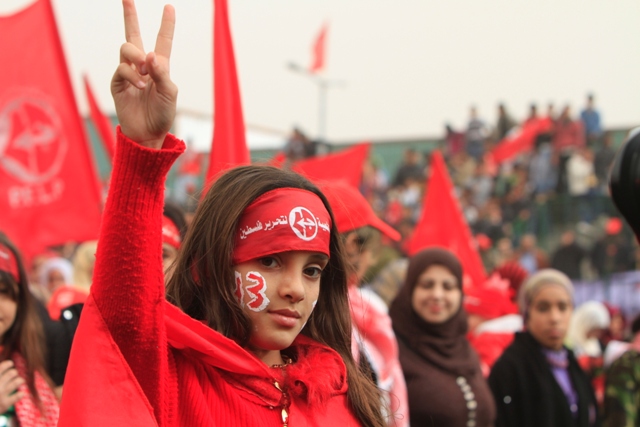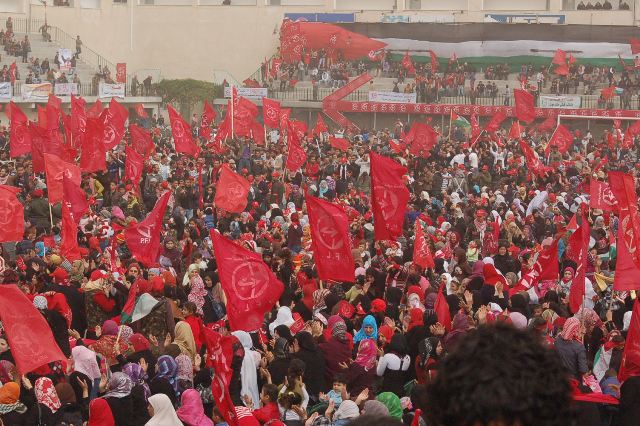The Spark December 2010 – January 2011
Joel Cosgrove (Wellington Workers Party branch organiser and former president of Victoria University Students’ Association).
The Education (Freedom of Association) Amendment Bill is making its way through parliament to make student union membership voluntary. Most people will be totally unaware of the bill and what it means, and may be thinking, “Anyway Freedom of Association is a good thing, isn’t it?” Continue reading “Voluntary Student Membership (VSM) – A socialist perspective”
What the Workers Party is about
All the registered parties got the following email a few weeks ago:
Dear Parties,
I am an 18 year old female. I would really like to be interested in politics, but I don’t know anything about it! I graduated high school 1 year ago, and for a few years political representitives have making sure I am enrolled to vote for the coming election. However no party has ever come forward to us to explain how everything works. I don’t know anyone my age who has a reasonable knowledge about politics. Probably, in the 2011 general election, most of my classmates will be making uninformed desicions about their choice of vote.
I understand that I can read your views on most of your websites but none of this makes any sense to me- there needs to some kind of 101 handbook ‘for dummies’ about what you are offering.
On Facebook, there is a tab on your profile called “Political Views”. All of my friends have things like “boring”, “what?!” or “none” written as theirs. You should be concerned!
Please explain!
Here’s what Jason Froch, a Workers Party member replied to her:
Many thanks,
 I’m actually rather delighted by your e-mail, it’s good to know that I’m not alone. I too have problems trying to make sense of that parliamentary sideshow that consists of bourgeois politics.
I’m actually rather delighted by your e-mail, it’s good to know that I’m not alone. I too have problems trying to make sense of that parliamentary sideshow that consists of bourgeois politics.
In 2008 we had before us:
v An economic system which requires continued and rising levels of unemployment
v State legislation that ensures the continuing fall of real wages derived from work, already down 25% since 1982.
v A predatory war in Afghanistan where New Zealand soldiers assist in the slaughter of civilians, all to assure US military and economic interests
v The continuation of an exploitative relationship with environment which will see a number of pacific islands underwater in the near future and cause massive social costs
v Violence against women who are often unable to leave their abusers because of an inability to support themselves and their children
v The spread of third-world diseases in our communities because of inadequate housing and an inability to afford a doctor visit
v Not to mention disproportionate magnification of all the above if you happen to be born Maori, Pacific Islander, or are an immigrant
And yet this reality did not connect with those politicians whose happy smiles asked to be our representatives once again in 2008 (the only difference between them being marginal differences in the rate of tax cuts—43% of which have gone to the top 12% of taxpayers). Continue reading “What the Workers Party is about”
43rd anniversary of the PFLP's founding
Tens of thousands of members and supporters of the Popular Front for the Liberation of Palestine gathered on December 11, 2010, in Gaza City’s Palestine Stadium, marking the forty-third anniversary of the PFLP’s founding in a mass rally.
Palestinians from all sectors – men and women, elderly and children, workers and farmers, attended the rally from all sectors of Gaza City, and traveling in groups from throughout the Gaza Strip, waving red flags that filled the stadium.
Continue reading “43rd anniversary of the PFLP's founding”
SANTA’S SONG (tune: Feliz Navidad)
 Every year it’s the same – a fucking big pain
Every year it’s the same – a fucking big pain
For no personal gain, giving millions of things away
It gives me the blues – squeezing down dirty flues
An obese old guy shouldn’t have to be slaving this way
So – thank god for the atheists
The muslims and buddists
The jews and the communists
Who don’t do Christmas day
Its only those Christian pricks
Who’re making me tired and sick
I just wish I could run over all the bastards with me sleigh
Me yard’s full of reindeer shit
And me helpers don’t help a bit
they’ve joined Unite and want fifteen dollars an hour
and now there’s a carbon tax
on me sooty old chimney daks
and global warming is softening up me pole
So – thank god for the atheists
The muslims and buddists
The jews and the communists
Who don’t do Christmas day
Its only those Christian pricks
Who’re making me tired and sick
I just wish I could run over all the bastards with me sleigh.
Don Franks
Nepal and India – Storm clouds on the horizon
The Spark December 2010 – January 2011
In Nepal and India, the people are rising up in revolution. Millions of people are arguing, marching in the streets and burning down police stations as they struggle to imagine and bring into existence a whole new world.
Nepal is a country where the government has almost no power. The working people of the cities and the poor peasants of the countryside have lost faith in the ability of the state to meet their needs – they have realised that the purpose of the state, its soldiers and its police, is to actively prevent their needs from being met. They have realised that the state is an enormous weapon created by a rich, parasitical elite which lives by exploiting and oppressing ordinary people.
The people of Nepal, having come to this conclusion, have decided they need to destroy the state and the ruling elite that hides behind it. They have built a radical movement for freedom and equality, and they have organised it into a powerful force – the Unified Communist Party of Nepal (Maoist). The UCPN (M) is the strongest political party in the country, and it is fighting to build a new Nepal where everyone is equal and where starvation, poverty and discrimination become things of the past. The Maoists won by far the largest vote in elections in 2008, and they have overwhelming mass support.
Revolution at a crossroads
 The Maoist party has just concluded a very important meeting. In an area of Nepal called Gorkha, 6000 revolutionary delegates travelled to represent the millions of poor people who have put their hopes in the Maoist party. They came to discuss a question – has the time come to rise up and finish the war? Is now the time for us to bring down the government, dismantle the state and build something better in its place? Continue reading “Nepal and India – Storm clouds on the horizon”
The Maoist party has just concluded a very important meeting. In an area of Nepal called Gorkha, 6000 revolutionary delegates travelled to represent the millions of poor people who have put their hopes in the Maoist party. They came to discuss a question – has the time come to rise up and finish the war? Is now the time for us to bring down the government, dismantle the state and build something better in its place? Continue reading “Nepal and India – Storm clouds on the horizon”
Fighting back in Europe
The Spark December 2010 – January 2011
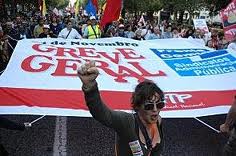
In the aftermath of the Greek bailout there was a lot of talk about the other vulnerable European economies that could have followed the collapse into bankruptcy of the Greek economy. Top of the list of vulnerable Euro zone economies were Portugal, Ireland, Italy and Spain. Of these, the three Mediterranean economies had been controversial additions to the Euro zone, as their economies were seen as weak and problematic, bringing vulnerability to the entire Euro project. Ireland on the other hand was a small economy with a well educated English-speaking population, and of little concern to planners. Most recently though, some of the largest and most militant demonstrations have occurred in Britain, where the Tory-Liberal Democrat coalition has implemented a harsh round of austerity measures, described as the most severe since the end of the Second World War. A common thread of the anti-government actions throughout Europe has been the demand the workers should not be forced to pay for a crisis that they did not cause. Continue reading “Fighting back in Europe”
Danny the Red
Don Franks
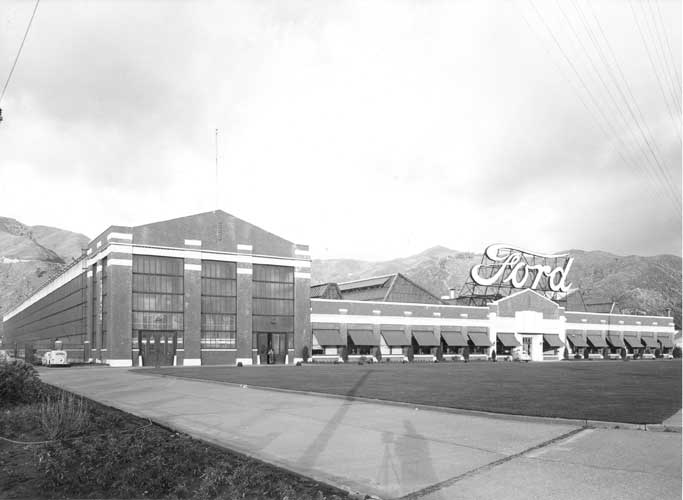
Because he once stood against Tom Skinner for FoL president, Danny Nichols will always rate at least a footnote in bourgeois labour movement history.
Which is more than most other shop floor militants get, because so much of our working class history never makes the scholarly pages. But it’s a simple fact that to thousands of Hutt Valley workers, their Danny the Red is literally remembered as a central figure of the last century.
Dennis Allan Nichols came from a dirt poor London working class family to seek a better life in New Zealand. In the late 1960s he got a job at Ford’s Lower Hutt car plant and for a while just kicked back and enjoyed the job security, relatively good pay and nice climate. He had an easy operation in charge of the phosphate machine and like other class savvy British immigrants, he made a comfortable niche for himself in the softer kiwi job environment.
But as time went on, Danny began to register the various injustices visited on less clued up workers in the unorganised plant. In those days there was no active union on site and foremen could and did sometimes clip a worker over the ear if he or she didn’t jump to it fast enough. Danny started making a few waves and began to revive the then defunct Coach and Motor Body Workers Union . In the course of this Danny got talking to union officials in the pub. Two of those officials were Ken Douglas and Pat Kelly. Ken suggested that the new fledgling car plant activists be delivered up to the Engineers Union. Pat came down to the plant and helped develop the Coach Workers into a radical independent job organisation. The main ingredients were a number of inexperienced but militant Maori line workers and Danny’s extraordinary leadership. Continue reading “Danny the Red”
Palestinian Organisations added to the New Zealand 'Terrorist List'
The Spark December 2010 – January 2011
Mike Walker
On the 12th of October 2010 John Key designated “a further seven international terrorist groups under the Terrorism Suppression Act”. He claimed it helped “implement our international obligations under United Nations Security Council Resolution 1373”. Under this pretence the addition of Palestinian organisations, Palestinian Islamic Jihad and the military wing of Hamas (Izz al-Din al-Qassam Brigades), to the New Zealand list of designated terrorists, is especially problematic. To highlight the hypocrisy and contradiction involved in these designations I will examine parts of the Terrorist Designations Working Groups (TDWG) paper; “Statement of case to designate the Palestinian Islamic Jihad (PIJ) as a terrorist entity”.
Terrorist Acts
A terrorist act is defined in the ‘Terrorist Suppression Act (TSA)’, section five, as an act which is carried out “for the purpose of advancing an ideological, political, or religious cause” or to “induce terror in a civilian population.” With outcomes such as “the death of, or serious bodily injury to, one or more persons”, “a serious risk to the health or safety of a population” or the “destruction of, or serious damage to, property of great value or importance, or major economic loss, or major environmental damage”. The case to designate PIJ features two case studies, used to highlight terrorist acts and support the case for designation. 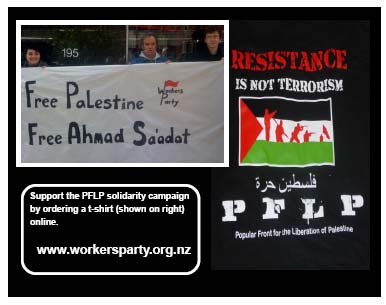 Continue reading “Palestinian Organisations added to the New Zealand 'Terrorist List'”
Continue reading “Palestinian Organisations added to the New Zealand 'Terrorist List'”
Unite Union’s first national conference
The Spark December 2010 – January 2011
Mike Kay, an editor of The Spark, caught up with Mike Treen, National Director of Unite just after its first national delegates conference on 25-26 November, which was followed by a one day political conference.
The Spark: This was the first national Unite conference. Why did you decide to take that step now?
MT: From our point of view it’s a bit of a coming of age of Unite. The Auckland project was started 5-6 years ago based on the transformation of an already existing union with a small membership of 100-200 members, a place where, on a voluntary basis, some union officials were giving support to workers who were unable to get representation through traditional union structures. The structure of that organisation no longer fits Unite today. We now have 8000 financial members, broad industry representation and membership engagement and involvement is through the delegates. Given the character of the industries we work in, with a high turnover, we depend all the more on the delegates for communication, mobilisation and so on. We were unsuccessful in general membership meetings, except for a few workplaces. So the most democratic aspect of membership input is through the delegates, so we decided to base the democratic decision-making structure through a national delegates conference, and even, ambitiously, to project doing that every year. Continue reading “Unite Union’s first national conference”
The West Coast mining tragedy – An international and historical class issue
Byron Clark The Spark December 2010 – January 2011
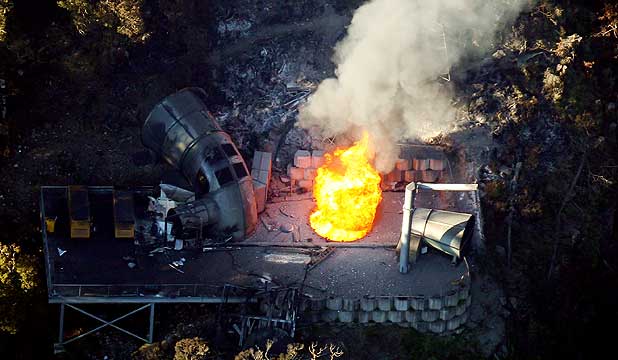
There is a famous slogan from a banner carried by striking miners at Waihi in 1912, “If blood be the price of your cursed wealth, good god we have bought it fair”. The slogan brings up images of early twentieth century industrialism; gruelingly hard work in unsafe environments, ruthless exploitation of workers by wealthy capitalists, and accidents abounded. In light of the Pike River mine disaster, the slogan does not seem as anachronistic as it may have prior to November. Indeed, not since 1914 when 43 miners were killed in a mine explosion in Huntly has New Zealand seen a mining disaster of such magnitude. Many have questioned how this disaster could have happened in a developed country, in the year 2010. It’s not the first one however; in April 29 miners died in a gas explosion in West Virginia, USA. The Pike River tragedy has an eerie sense of deja vu for some. Lawyer Davitt McAteer, who is heading an investigation of the USA deaths, was quoted by The New Zealand Herald as saying “You can’t suggest that the mining industry is going forward into the 21st century with the rate that it’s killing people.”
As the dust settles on the West Coast, it is becoming increasingly clear that the pursuit of profit was put ahead of the safety of workers. While Pike River Coal is one of New Zealand’s largest corporations, and valued at $400 million, the company made a $54.1 million loss between July 2006 and June 2010, and was under pressure from its major shareholder, New Zealand Oil & Gas, to improve its performance. The safety standards of the mine have been condemned by experts such as Andrew Watson, the operations manager of United Kingdom Mines Rescue Operations, who told the New Zealand Herald that methane levels had to have reached 5 to 15 percent of the atmosphere for the explosion to occur. In British mines, work stops if methane levels reached just 1.25 percent, and mines are evacuated once they reach 2 percent. Watson stated that “either the warning system was inadequate, or it was not sufficiently monitored”. The most likely cause of the methane build up was a power outage that disabled the mine’s ventilation system; there was no backup generator. Geologist Murray Cave had warned back in 2007 that the geological risks at the mine site included a pit bottom with deep, highly gassy coals and the associated risk of “outburst”, or gas explosions. The Hawera fault zone running through the mine could be an additional source of methane. Continue reading “The West Coast mining tragedy – An international and historical class issue”

